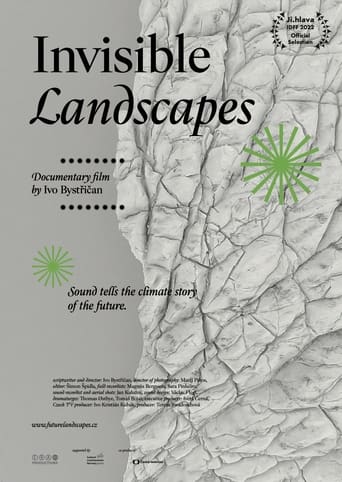Invisible Landscapes
This documentary film, which is based on the field-recording research method, gives space to the physical places where important energy, natural, and political processes take place. The director, musicians Václav Havelka and Pan Throrarensen, philosopher Lukáš Likavčan, and field-recordists Sara Pinheiro and Magnús Bergson all ask the question: “What are sounds that we don’t attach any importance to in our everyday lives trying to tell us and how can they predict the sequence of events that affects our lives?” Here, sound becomes a tool that can oftentimes capture geological time better than an image. This documentary film, which is based on the field-recording research method, gives space to the physical places where important energy, natural, and political processes take place. The director, musicians Václav Havelka and Pan Throrarensen, philosopher Lukáš Likavčan, and field-recordists Sara Pinheiro and Magnús Bergson all ask the question: “What are sounds that we don’t attach any importance to in our everyday lives trying to tell us and how can they predict the sequence of events that affects our lives?” Here, sound becomes a tool that can oftentimes capture geological time better than an image. This documentary film, which is based on the field-recording research method, gives space to the physical places where important energy, natural, and political processes take place. The director, musicians Václav Havelka and Pan Throrarensen, philosopher Lukáš Likavčan, and field-recordists Sara Pinheiro and Magnús Bergson all ask the question: “What are sounds that we don’t attach any importance to in our everyday lives trying to tell us and how can they predict the sequence of events that affects our lives?” Here, sound becomes a tool that can oftentimes capture geological time better than an image. This documentary film, which is based on the field-recording research method, gives space to the physical places where important energy, natural, and political processes take place. The director, musicians Václav Havelka and Pan Throrarensen, philosopher Lukáš Likavčan, and field-recordists Sara Pinheiro and Magnús Bergson all ask the question: “What are sounds that we don’t attach any importance to in our everyday lives trying to tell us and how can they predict the sequence of events that affects our lives?” Here, sound becomes a tool that can oftentimes capture geological time better than an image.



 AD
AD